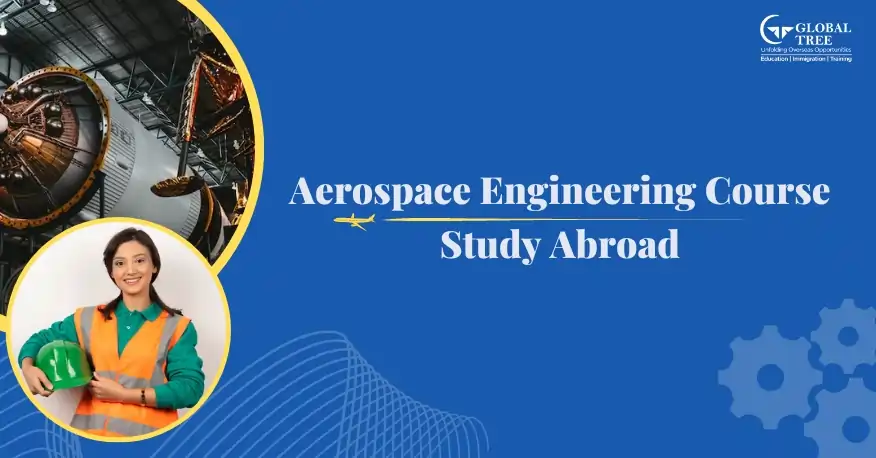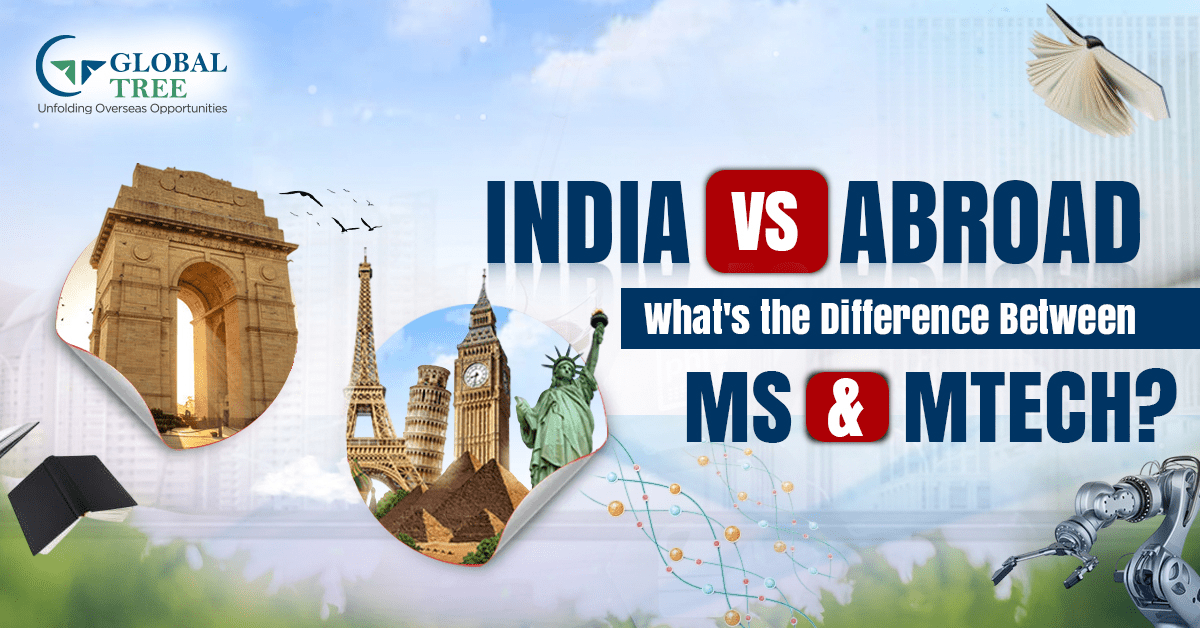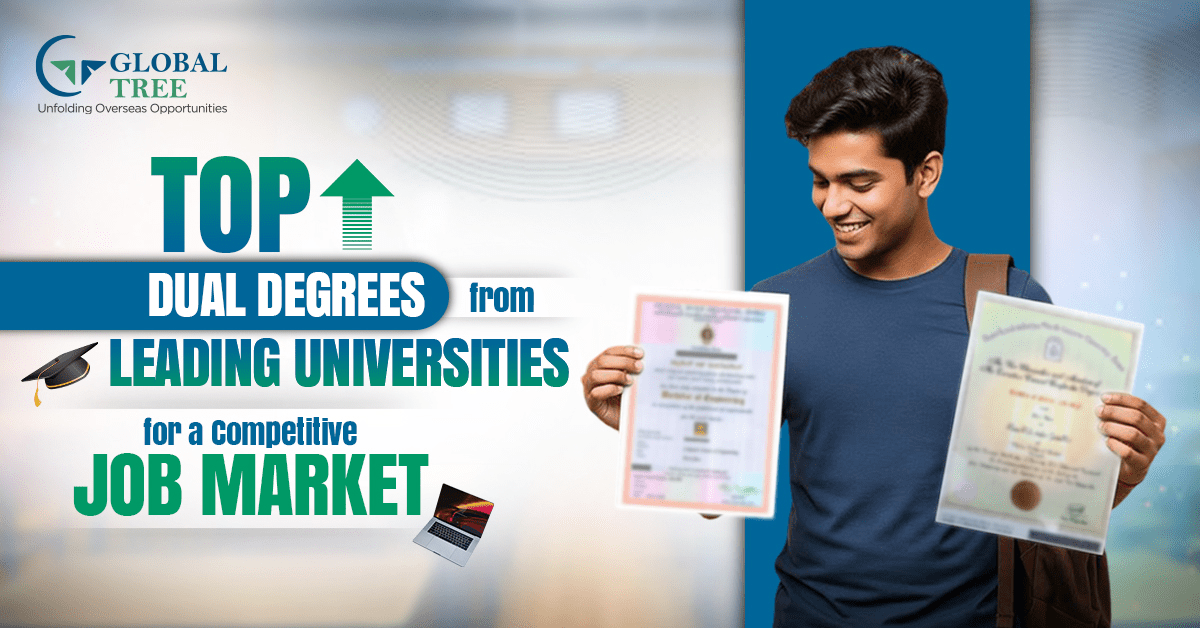Aerospace Engineering: A Comprehensive Guide for Indian Students

- Introduction
- Why should one pursue aerospace engineering?
- How much does it cost to study Aerospace Engineering Courses Abroad?
- 2.1 The Top Universities for Aerospace Education Abroad and India
- 2.2 Abroad Universities
- 2.3 Indian Institutes
- 3.1 The Eligibility for Aerospace Engineering
- 4.1 Taking Flight: The Financial Landscape of Aerospace Engineering
- 4.2 Fees for Abroad Institutions
- 4.3 Fees for Indian Institutions
- 4.4 Tips to Manage Cost
- 5.1 Designing the Future: Careers after Aerospace Engineering
- 6.1 Soaring to New Heights: Leading Aerospace Recruiters
- 6.2 Top Employers in Abroad
- 6.3 Top Employers in India
- 7.1 The Skys the Limit: Salaries and Job Roles in Aerospace Engineering
- 8.1 Conclusion
- 9.1 FAQs
Introduction
Aerospace engineering deals with the science and technology of designing, building, and operating spacecraft, missiles, weapons systems, and aircraft. It is a field that combines the knowledge of Mechanical Engineering, Computer engineering, and Electrical engineering.
It covers various topics and concepts including mathematics, computer science, physics, chemistry, electricity, and robotics.
Aerospace engineering provides great financial pay with a high return on investment. It is a developing engineering field that will grow in the future.
We shall discuss the top institutions in India and abroad, eligibility, fees, cost management, opportunities, Salaries, and top recruiters in Aerospace Engineering in this blog.
(Read More: Top 10-Engineering Courses In-demand in 2025)
Why should one pursue aerospace engineering?
Pursuing Aerospace Engineering can be exciting and rewarding for several reasons.
It is an interesting field with a combination of a desire for space exploration, working with aircraft, a passion for flight, and learning advanced technologies with great career opportunities.
Here’s a list of reasons why you should pursue it:
1. Cutting-Edge Innovation and Technology
Aerospace engineering requires learning and dealing with the most advanced technology and innovation for designing and developing aircraft and spacecraft. If you are a tech enthusiast with a knack for innovation, this field is highly appealing.
2. Space Exploration and Aviation
Aerospace Engineers play a significant role in the development of space exploration. If you are someone who is fascinated by space, rockets, and satellites, this field offers you a career in your passion.
3. Global Impact and Contribution
Aerospace engineers contribute to projects which have a high global impact. This field allows you to make developments in the aerospace sector that have lasting effects on the world like safe air travel, improving flight systems, and environmental monitoring.
4. Diverse Career Opportunities
The field of Aerospace Engineering opens multiple job opportunities for you abroad and allows you to work in different fields such as Aeronautics, defense, automotive industries, etc.
5. Challenging and Dynamic Work
Aerospace engineering involves solving complex and intricate problems such as fuel efficiency in aircraft. If you are a person who loves to take on challenges and use analytical skills, this field is a good option for you.
6. Job Stability and High Salary
Aerospace Engineering is a high-paying field with an increasing demand for aerospace engineers around the world. The job outlook remains positive due to constant advancements in technology, increased demand for air travel, and the growing importance of space missions and satellite-based services.
7. International Collaboration
Aerospace projects often involve large-scale collaborations between international teams and space agencies like NASA and ISRO, private companies like SpaceX, and Boeing, and research institutions. Working in this field allows you to collaborate with experts from all over the world.
How much does it cost to study Aerospace Engineering Courses Abroad?
While selecting a university for pursuing your Aerospace degree, you should look for academic excellence, global reputation, infrastructure, research facilities, qualified faculties, and a supporting student environment.
Here is a list of the best institutes to pursue Aerospace engineering in Abroad and India.
2.1 The Top Universities for Aerospace Education Abroad and India
While selecting a university for pursuing your Aerospace degree, you should look for academic excellence, global reputation, infrastructure, research facilities, qualified faculties, and a supporting student environment.
Here is a list of the best institutes to pursue Aerospace engineering in Abroad and India.
2.2 Abroad Universities
| Institute | Country |
|---|---|
|
Massachusetts Institute of Technology (MIT) |
USA |
|
California Institute of Technology (Caltech) |
USA |
|
University of Cambridge |
UK |
|
Stanford University |
USA |
|
Imperial College London |
UK |
|
University of Toronto |
Canada |
|
University of Sydney |
Australia |
|
Technische Universität München (TUM) |
Germany |
|
National University of Singapore |
Singapore |
|
The University of Waterloo |
Canada |
2.3 Indian Institutes
| Institute | State |
|---|---|
|
Indian Institute of Technology (IIT) Bombay |
Maharastra |
|
Indian Institute of Technology (IIT) Madras |
Tamil Nadu |
|
Indian Institute of Technology (IIT) Kanpur |
Uttar Pradesh |
|
Indian Institute of Technology (IIT) Kharagpur |
West Bengal |
|
Indian Institute of Technology (IIT) Delhi |
Delhi |
|
Indian Institute of Space Science and Technology (IIST) |
Kerala |
|
National Aerospace Laboratories (NAL) |
Karnataka |
|
Vellore Institute of Technology (VIT) |
Tamil Nadu |
|
Manipal Institute of Technology, Manipal |
Karnataka |
|
NIT Warangal |
Telangana |
3.1 The Eligibility for Aerospace Engineering
To pursue a degree in Aerospace Engineering after 12th and to become an aerospace engineer, there are certain eligibility criteria that you should meet:
- You must have completed your 10+2 with your subjects as Physics, Chemistry, and Mathematics from a recognized board.
- Abroad: You must write and qualify for entrance examinations, such as the GRE, and language proficiency exams, such as the IELTS, TOEFL, etc.
- In India: You must write and qualify for entrance exams such as JEE, Indian Institute of Aeronautics Entrance Exam, etc.
4.1 Taking Flight: The Financial Landscape of Aerospace Engineering
Aerospace Engineering is a cost-intensive course that has great Return on Investment as it is a financially rewarding field. We shall look at the costs of the program abroad as well as in India.
4.2 Fees for Abroad Institutions
To pursue your Aerospace Education Abroad, the tuition fees for the program vary depending on the institute and country you are pursuing your graduation in.
- In the USA- Tuition fees range from around 27,000 USD to 70,000 USD.
- In Australia- Tuition fees range from around 42,000 AUD to 50,000 AUD.
- In Canada- Tuition fees range from around CAD 25,000 to 55,000 CAD.
- In Germany- Tuition fees range from around €10,000 to €20,000 per year.
4.3 Fees for Indian Institutions
To pursue your Aerospace Education in India, the tuition fees for the program vary depending on the type of institute, facilities provided, private or government, you are pursuing your graduation in.
(Suggested Read: How many dollars should you carry from India to the USA?)
- Government Universities: Tuition fees can range from INR 50,000 to 2 lakhs per year.
- Private Universities: Tuition fees can range from INR 3 lakhs to 10 lakhs per year.
4.4 Tips to Manage Cost
- Scholarships- Look for the top scholarships being provided for the universities for the course and apply.
- Loans- you can apply for private and government loans for education.
- Part-time jobs- It's always good to work, you can manage some portion of your costs by working part-time.
5.1 Designing the Future: Careers after Aerospace Engineering
1.Aerospace Engineering offers you diverse careers in multiple fields. The careers with descriptions are mentioned below:
Aircraft Design and Development
Deals with designing and developing aspects of the aircraft.
2.Spacecraft Design and Development
Deals with designing and developing spacecraft and Satellites.
3.Aerospace Systems Engineering
Look over the fine working of components and systems in spacecraft and aircraft.
4.Aerospace Research and Development
They research to develop new technologies and improve existing systems.
5.Aerospace Testing
Deals with conducting tests and simulations to evaluate the performance and safety of aerospace products.
(Read More: Who is eligible to study Avionics and Aeronautical Engineering?)
6.Inspectors and Compliance Officer
This involves working closely with aerospace engineers and manufacturers to inspect, assess, and verify compliance with industry regulations, safety standards, and design.
7.Aerodynamics Engineer
Focuses on the study of airflow around aircraft and spacecraft.
8.Propulsion Engineer
Develops a Propulsion system for the aircraft and spacecraft.
6.1 Soaring to New Heights: Leading Aerospace Recruiters
The aerospace industry is a dynamic and rapidly evolving field. From designing cutting-edge aircraft to pioneering space missions, aerospace companies play a crucial role in shaping the future of transportation, defense, and space exploration that pushes the boundaries of technology, innovation, and human exploration.
As demand for advancements in aviation and space technologies grows, so does the need for highly skilled professionals to drive these innovations. Top recruiters in abroad and India are mentioned below:
6.2 Top Employers in Abroad
- Boeing
- Airbus
- Lockheed Martin
- Embraer
- SpaceX
- NASA
- Blue Origin
- Roscosmos
- BAE Systems
- DLR (German Aerospace Center)
- Rolls-Royce
- Honeywell Aerospace
(You may also like: How much does it cost to study Aerospace Engineering Course Abroad?)
6.3 Top Employers in India
- ISRO (Indian Space Research Organisation)
- DRDO (Defence Research and Development Organisation)
- HAL (Hindustan Aeronautics Limited)
- NAL (National Aerospace Laboratories)
- Bharat Electronics Limited (BEL)
- Tata Advanced Systems Limited (TASL)
- L&T (Larsen & Toubro)
- Adani Defence & Aerospace
7.1 The Skys the Limit: Salaries and Job Roles in Aerospace Engineering
Aerospace engineering is one of the most exciting fields to work in as a professional. Aerospace engineers are well compensated for their expertise and skills reflecting the demand of a skilled workforce and the critical nature of their work.
The salaries of aerospace engineering with the job profiles and compensation are given below in the table.
| Job Profile | Salaries in India | Salaries in Abroad |
|---|---|---|
|
Aerospace Structures Engineer |
7-12 LPA |
$70,000 to $110,000 p.a. |
|
Airport Operations Engineer |
5-10 LPA |
$60,000 to $90,000p.a. |
|
Vehicle Dynamics Engineer |
7-12 LPA |
$70,000 to $110,000 p.a. |
|
Quality Assurance Engineer |
6-10 LPA |
$65,000 to $100,000 p.a. |
|
Flight Test Engineer |
6-12 LPA |
$80,000 to $120,000 p.a. |
|
Avionics Engineer |
8-12 LPA |
$75,000 to $115,000 p.a. |
|
Air Traffic Controller |
6-10 LPA |
$60,000 to $120,000 p.a. |
|
Simulation & Modeling Engineer |
5-12 LPA |
$70,000 to $110,000 p.a. |
|
Production Engineer |
8-12 LPA |
$60,000 to $100,000 p.a. |
8.1 Conclusion
In conclusion, Aerospace Engineering is a vast field that is growing exponentially with the modern world. The demand for Aerospace engineers is on the rise. Though college can be expensive, the ROI makes it worthwhile. Students can look for scholarships, loans, and part-time jobs to meet the tuition costs.
The global aerospace sector offers exciting careers in areas such as aircraft design, propulsion systems, aerodynamics, and space technology, with leading employers like NASA, SpaceX, Boeing, ISRO, and HAL offering opportunities.
Planning your College is one of the most essential decisions that you make in life, so make sure you use the best guidance and services available.
Global Tree is a leading service provider for Abroad education and has helped lakhs of students in planning their dream study abroad journey and making it a reality.
We can help you plan your academic journey with the finest use of resources and opportunities. Visit your nearest Global Tree branch now!!!
9.1 FAQs
1. Can I join ISRO as an aerospace engineer?
Yes, you can join ISRO after completing your aerospace engineering as ISRO recruits engineers with expertise and knowledge of Aerospace.
2. Which subject is best for aerospace?
To pursue Aerospace engineering, one should have a good knowledge of Mathematics, Physics, and Chemistry.
3. Is aerospace good for girls?
Yes, Aerospace engineering is a great option for all genders who have an interest in aerospace technology.









